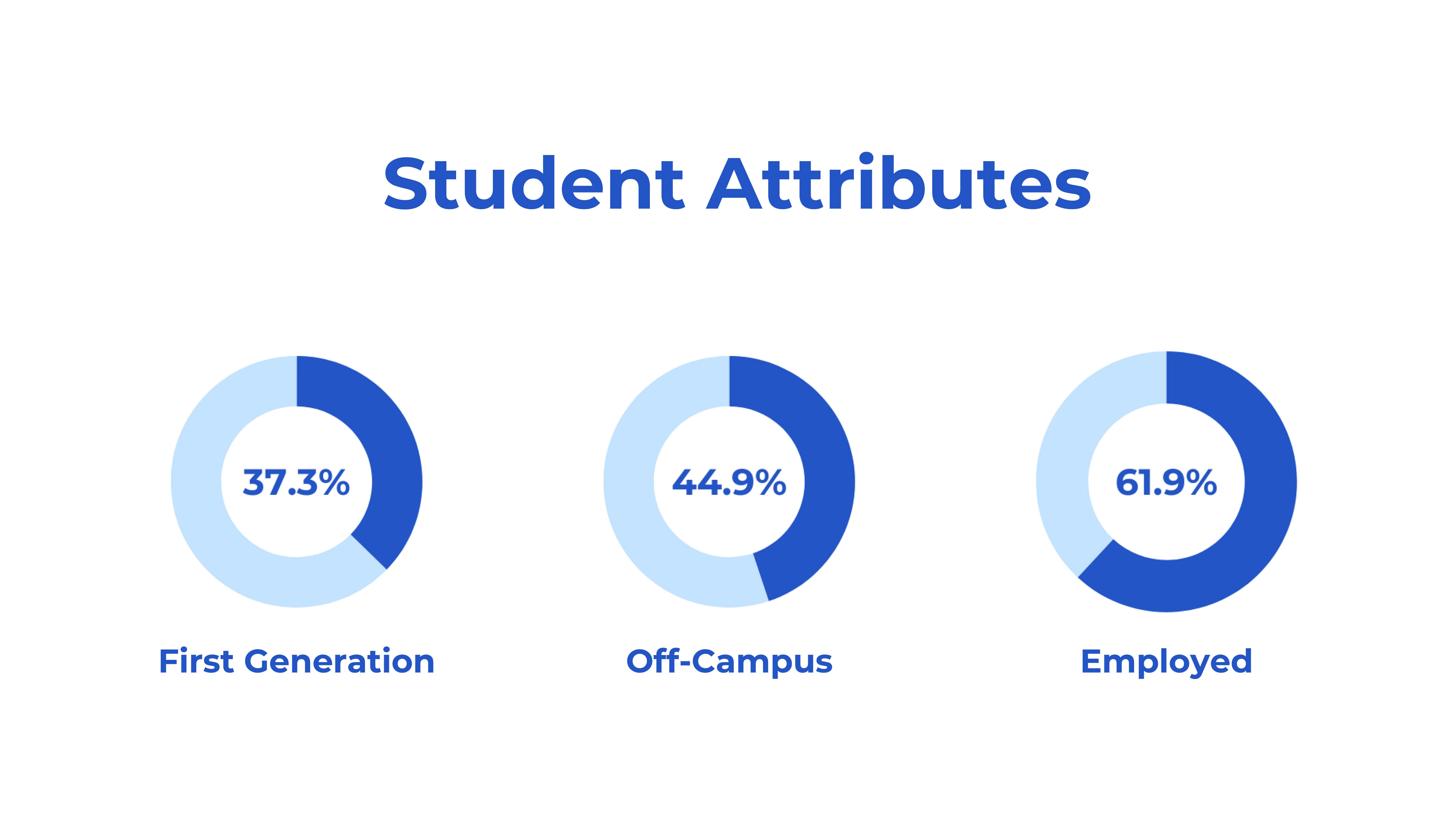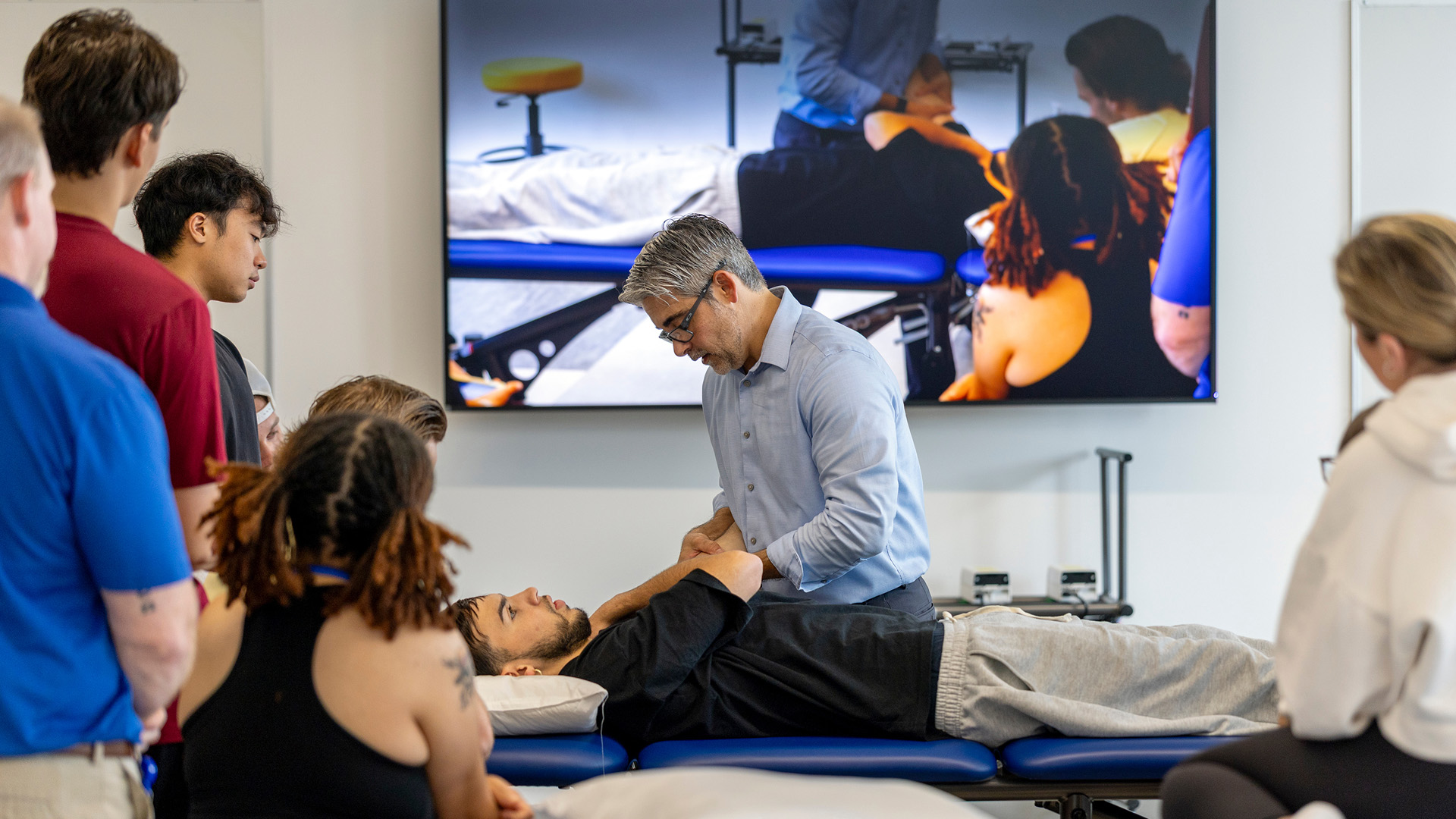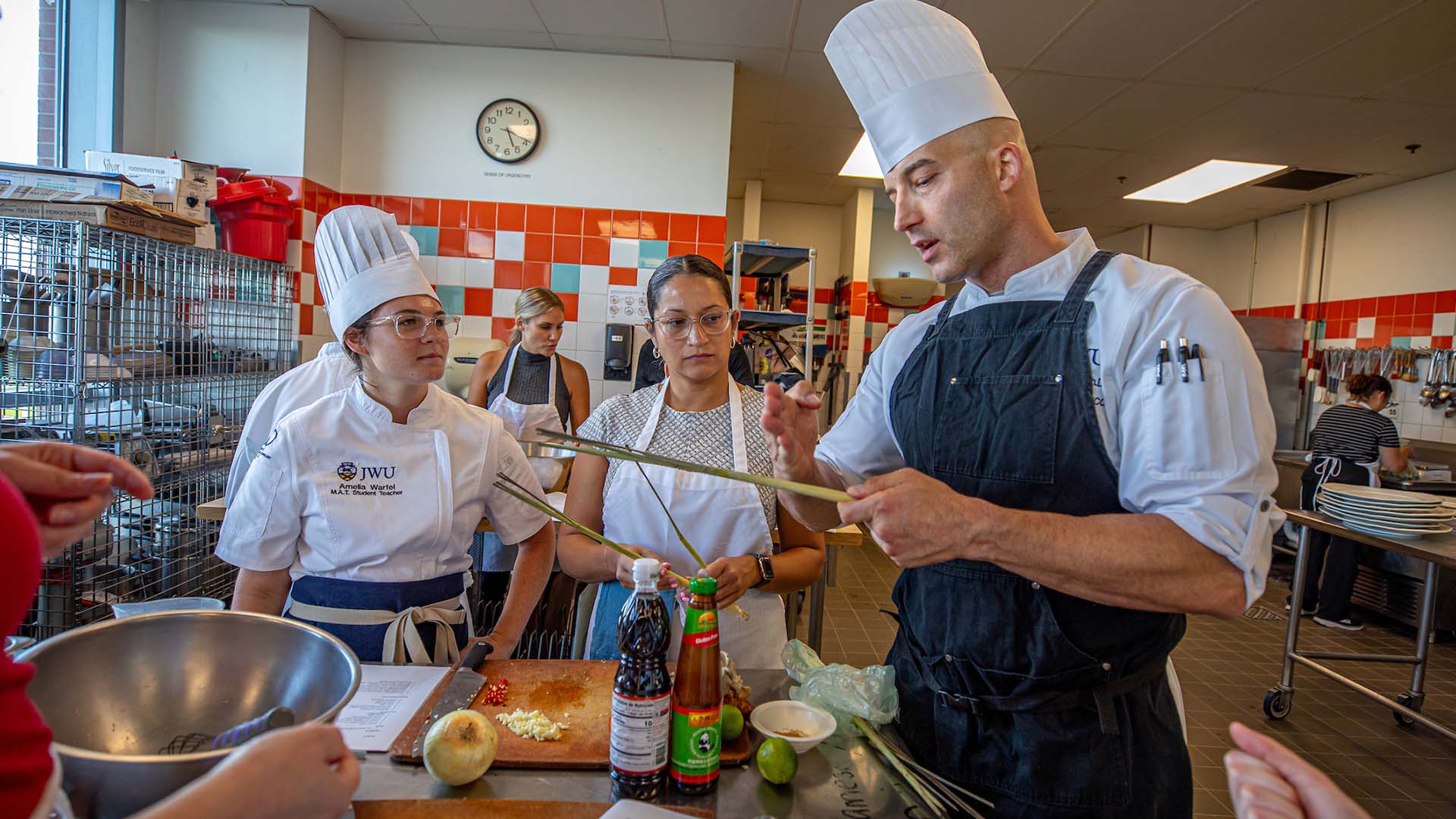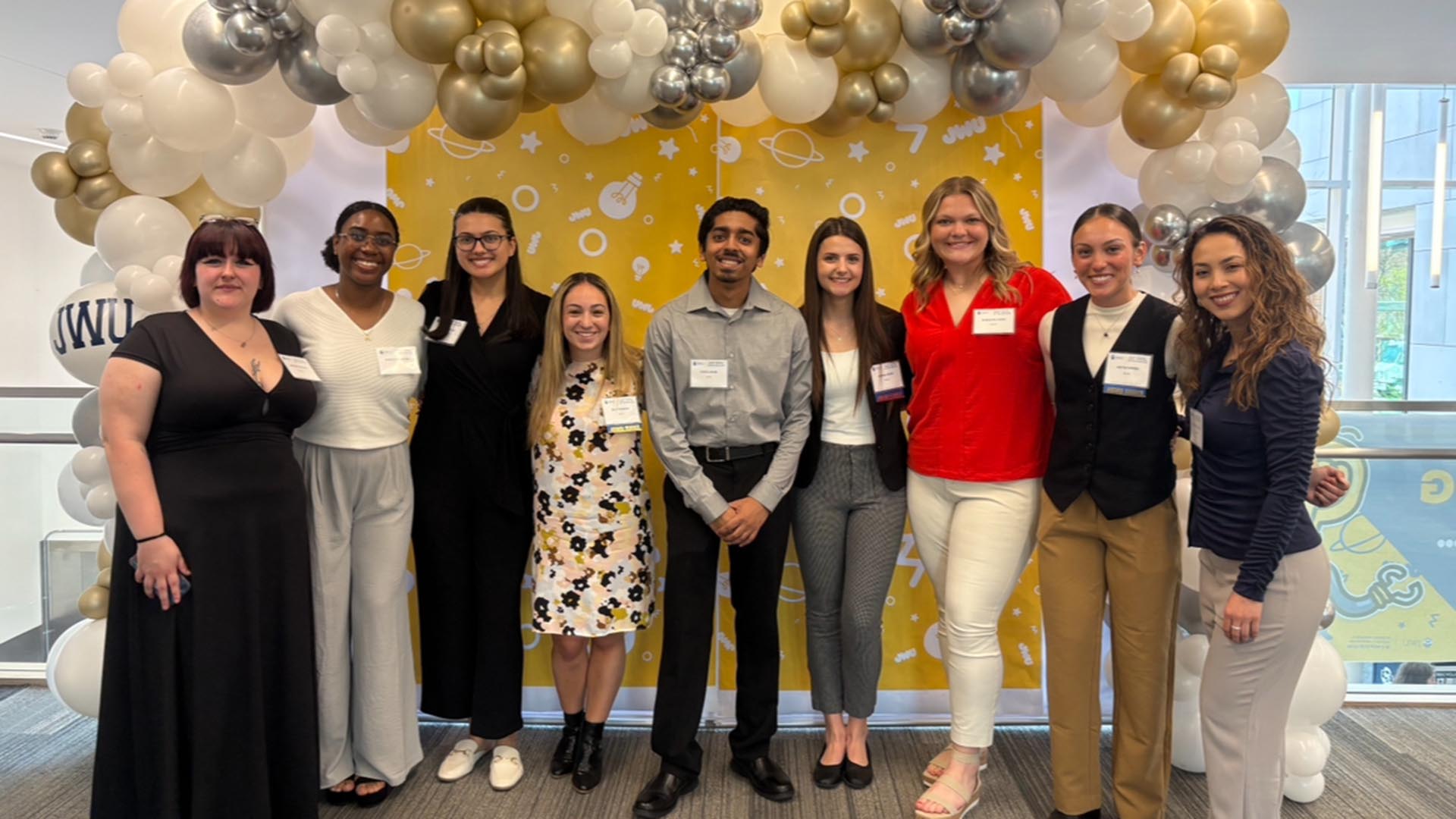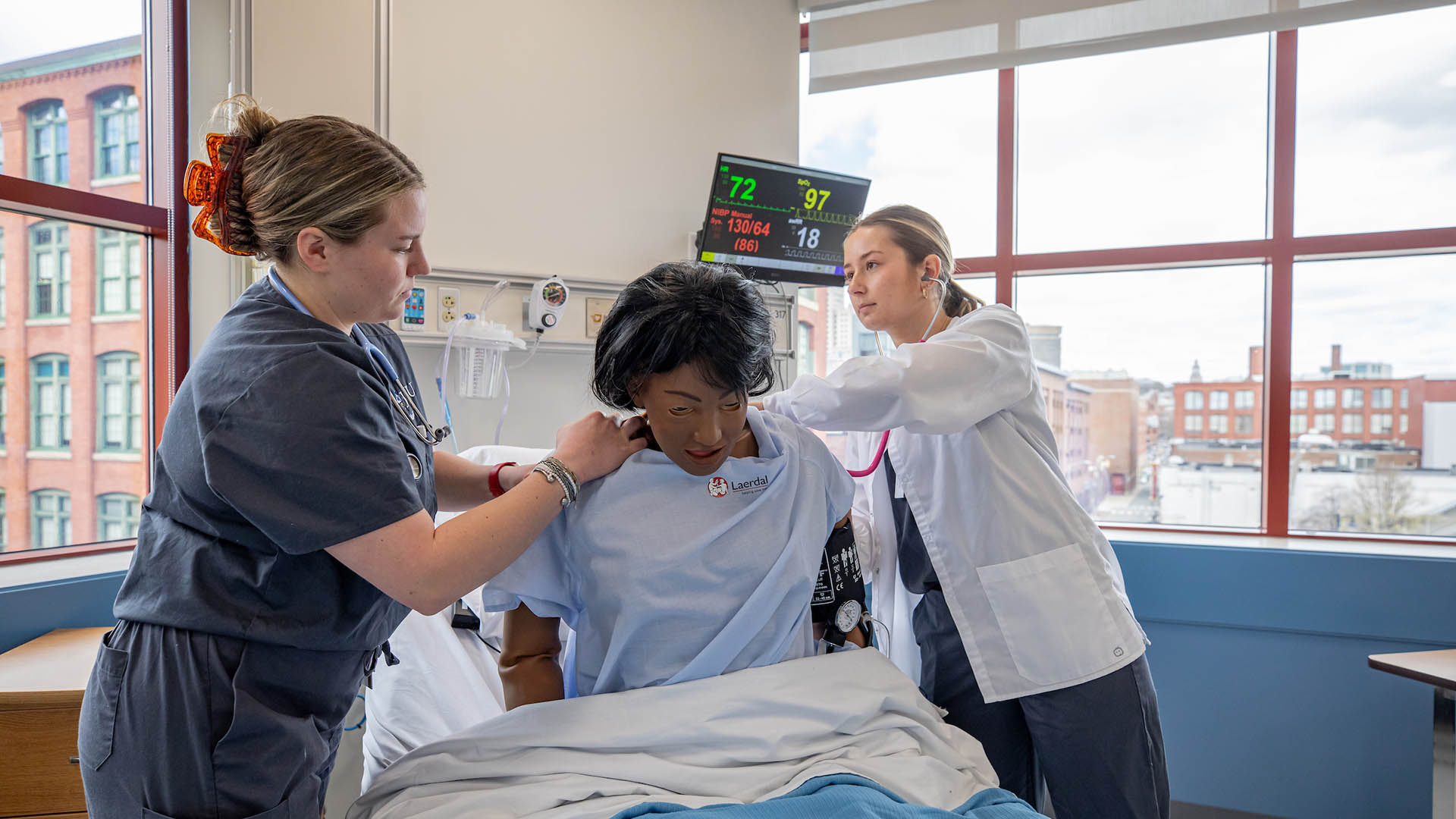Evidence-based Approaches to Support Student Mental Health
The college years throw a lot of new challenges at us. Maybe you’re the first in your family to go to college. You’re developing a new sense of independence. Figuring out how to live with roommates. Dealing with new financial responsibilities and academic pressures.
That’s a lot all by itself — but as Associate Professor Sam Rosenthal noted during her recent Health Equity lecture outlining the behavioral health of college-age students, a staggering 75% of mental health disorders are established by the mid-twenties. That means that the 18-25 cohort exhibits the highest rates of anxiety and depressive symptoms, and they’re also extremely vulnerable to developing parallel addictive behaviors.
“Those with social support reduce their risk of insomnia by 33%, their risk of anxiety by 47% and their risk of depression by 50%. That’s dramatic.”
But the data is only one side of the story, and Rosenthal prefaced her talk by noting, “I do want you to know we’re going to get to a positive note of the solutions by the end.” And it may not surprise you to learn that community-building — strengthening our real-world bonds to others — plays a crucial role in improving our individual mental health. (Put down that phone, while you’re at it.)
A Career Built on Studying Behavioral Health
Rosenthal has built an impressive career on her research into the multi-factor forces driving mental-health trends in young adults.
In addition to teaching and serving as the director of JWU’s Center for Student Research and Interdisciplinary Collaboration, she serves as an evaluator for the Rhode Island Department of Health and as the lead epidemiologist for the State Epidemiological Outcomes Workgroup (SEOW). Under the aegis of SEOW, she administers the RI Young Adult Survey (RIYAS), which focuses on the behavioral health of 18-25-year-olds.
Assessing the Pandemic Spike
Depression rates among young adults have doubled in the past 10 years. But the pandemic sent these rates soaring — Rosenthal calls the spike “extreme” — due to a polycrisis of factors, including social isolation, disrupted academic studies, and unprecedented loss. During the 2020-21 academic year, noted Rosenthal, 60% of college-age students reported at least one mental health disorder, and 75% experienced psychological distress. 1 in 5 young adults in Rhode Island reported losing a loved one to Covid-19.
Once you start taking into account the social upheaval of recent years — from gun violence to racial discrimination, climate change anxiety and political turmoil — and you have a massive amount of collective trauma having a ripple effect on already fragile mental health states.
Rosenthal provided a top-level overview of two recent studies. The Healthy Mind study surveyed more than 76,000 students from 400 institutions during the 2022-23 academic year. In October 2022, Rosenthal and her co-researchers used an NIH grant to survey 586 JWU students assessing their levels of depression, anxiety, insomnia and social support.
While the Healthy Mind study clocked depression rates at 41%, the JWU case study reported 53% — that’s “higher than what we saw in the national study, but actually comparable to what we saw in the Rhode Island state study,” explained Rosenthal. “And also we have a huge representation of sexual gender minority students, which is likely to be driving some of these higher rates for us as well.” (The JWU study demographics broke down as 15.1% cisgender male, 47.4% cisgender female and 37.5% sexual or gender minority.)
So, what are the solutions for combatting these numbers? For Rosenthal, who has done multiple studies correlating social media use and depression, building up social support networks is “critically important”: “Those with social support reduce their risk of insomnia by 33%, their risk of anxiety by 47% and their risk of depression by 50%. That’s dramatic.”
“Gratitude is really powerful. I often tell my students to break up anxiety with gratitude.”
Mindfulness, Quiet Hours & Other Mental Health Boosts
Rosenthal opened the conversation to students and faculty in the audience to share their ideas for boosting our community connections and strengthening overall well-being.
Sarah and Jasmine, two undergraduate students in the Public Health program, shared how much JWU’s 3-credit Mindfulness for Health & Wellbeing class helped them. (This course is currently an elective, but there is talk of making it requirement.)
The course provides students with the opportunity to learn the principles of mindfulness, develop their own mindfulness mediation practice, and apply principles of mindfulness to daily life.
Prior to taking the class, Jasmine had been struggling with time management. Having never meditated before, it took her some time to acclimate to the practice. But now, she says, “I feel like this class has definitely not only forced me to try new things, but I’ve made it a part of my daily routine. It’s definitely helped me!”
Initially, Sarah noted that she “had a really hard time sitting down with myself and going through [the process].” Gradually, with the guidance of Professor Jennifer Swanberg, “I've been able to develop my own practice that I find beneficial. There are those times where I still feel frustration, but now I feel more prepared to deal with it.”
In the Occupational Therapy department, faculty celebrate Grati-Tuesdays, where they keep a running list of what they are thankful for. “Gratitude is really powerful,” noted Assistant Professor Kathryn Burke. “I often tell my students to break up anxiety with gratitude. Thinking about something that you’re grateful for can sometimes help get your brain out of that downward spiral that everything is terrible.”
Other suggestions included:
- A peer mentorship program to help increase social support
- Moving 11:59pm assignment deadlines to 8pm
- Minimizing the number of early morning classes
- Enforcing quiet hours in residence halls
- Expanding the number of safe community spaces (like the Bridge for Diversity, Equity and Social Justice) where students can share with their peers
“Creating a sense of belonging is crucially important,” concluded Rosenthal. “We need to have safe spaces to hold people when the rest of the world feels unsafe.”
JWU has a wealth of confidential mental health resources, including counseling services in Providence and Charlotte. Individual counseling sessions and consultations are available by appointment, as well as resources for mental health screenings, education and crisis intervention.
Related Reading:
6 Ways College Students Can Improve Their Mental Health
Self-Care Tips to Use During Exams
JWU Alumni Share Insight on DEI and Belonging
Below: Statistics from Rosenthal’s JWU Case Study: Student attributes included 37.3% first generation college attendees; 44.9% living off campus; 61.9% employed while at JWU.